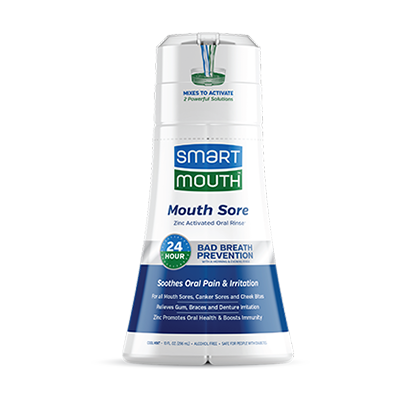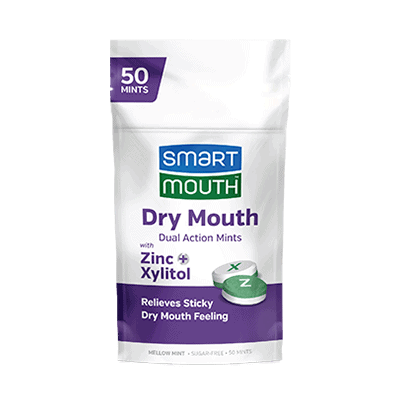Cottonmouth and Dry Mouth: What Are the Signs?
If you’re like millions of other Americans, you may find yourself asking questions about what cottonmouth is and the signs you need to look for.
Cottonmouth, otherwise known as dry mouth or xerostomia, occurs when your body doesn’t naturally produce enough saliva. You can get cottonmouth naturally or by consuming food or substances. Dry mouth can:
- Leave a sticky or dry feeling in your mouth
- Make talking or swallowing difficult
- Lead to issues like bad breath, tooth decay, and gingivitis
It’s an uncomfortable situation that affects millions of people all over the world every day.
Unfortunately, cottonmouth can be a regularly occurring issue or a temporary experience; it depends on the person, their body, and what they’re consuming.
Stress, medications, nerves, food, and drugs can all slow down saliva production and bring on a dry, cottonmouth sensation.
Think about a water slide without water running through it. It ruins the experience. It’s the same when someone experiences cottonmouth symptoms, which can be debilitating.
What Is Cottonmouth?
The American Dental Association (ADA) defines cottonmouth, dry mouth, or xerostomia (the fancy clinical term) as a state when your body develops an issue with keeping up saliva flow or saliva production.
The salivary glands begin to slow down saliva production, giving you a dry, parched feeling that can make your mouth feel sticky and uncomfortable.
Proper saliva production is important because it plays several roles in good oral health. Healthy saliva production:
- Helps digest food
- Hydrates your mouth
- Cleans your mouth
- Maintains a neutral pH level to keep teeth and gums healthy
- Helps deter bacteria and infections
What Does Cottonmouth Feel Like?
People describe cottonmouth as an unpleasant, dry, or parched feeling in the mouth, tongue, and throat.
Because cottonmouth affects everyone differently, we feel varying sensations.
The most common feelings associated with cottonmouth are a burning sensation in your throat or the dry, sticky sensation that you’ve stuffed cotton balls in your mouth.
What Are The Signs and Symptoms Of Cottonmouth?
Cottonmouth can feel like many different things depending on the person and the issue they have with saliva production. Typical signs and symptoms of cottonmouth include:
- A dry feeling in your throat
- A sticky or parched feeling in your mouth
- Constant & unquenchable thirst
- Difficulty speaking
- Trouble swallowing
- A hoarse voice
- A sore throat
- Trouble tasting food and beverages
- Difficulty wearing dentures
- Burning or tingling in the mouth and on the tongue
- Stringy saliva
Consistent cottonmouth can lead to:
- Bad breath
- Mouth sores
- Cracked corners of your mouth
- Dry and chapped lips
- A red and dry tongue
- Gingivitis
- Thrush
- Tooth decay
What Causes Cottonmouth?
We may get cottonmouth for various reasons.
Daily activities like eating or smoking can reduce saliva flow. In addition, medication side effects or health conditions can cause a dry, cottonmouth feeling.
For example, many muscle relaxants and sedatives increase the feeling of cottonmouth and exacerbate cottonmouth symptoms.
If you think medications you’re taking could be contributing to cottonmouth, consult with your doctor.
These habits and behaviors can also cause dry mouth.
- Breathing through the mouth
- Drinking alcohol
- Consuming caffeine
- Smoking cigarettes or cigars
- Using electric cigarettes or vaporizers
- Chewing tobacco
- Using medical marijuana
- Using narcotics
What Are the Side Effects of Cottonmouth?
Cottonmouth can lead to more serious oral health side effects. Since saliva cleans the mouth and promotes a healthier mix of oral bacteria, people that suffer from ongoing cottonmouth may experience:
- Tooth decay
- Gum disease
- Bad breath
- Overall discomfort
What Are Some Ways To Relieve Cottonmouth?
If you suspect your daily activities or lifestyle choices may be causing your cottonmouth, try to cut back to improve your cottonmouth signs and symptoms.
In addition, maintain proper oral health to help alleviate some cottonmouth side effects.
- Brush twice a day
- Floss regularly
- Use an alcohol-free mouthwash formulated to relieve dry mouth
Also, drink water and stay hydrated through the day and during meals to help relieve cottonmouth. Increasing your water intake aids saliva production and helps you chew and swallow your food.
Conclusion
Cottonmouth has several causes, including lifestyle choices and medication side effects. If you suffer from dry mouth, drink more water, consider dietary changes, keep up with your oral health, and talk with your doctor about other potential solutions. A mouthwash designed to combat dry mouth may also help.
At SmartMouth, we love saving you from bad breath, but we also love saving you money.Sign up today for coupons, offers and updates!
The post Cottonmouth and Dry Mouth: What Are the Signs? appeared first on SmartMouth.


























